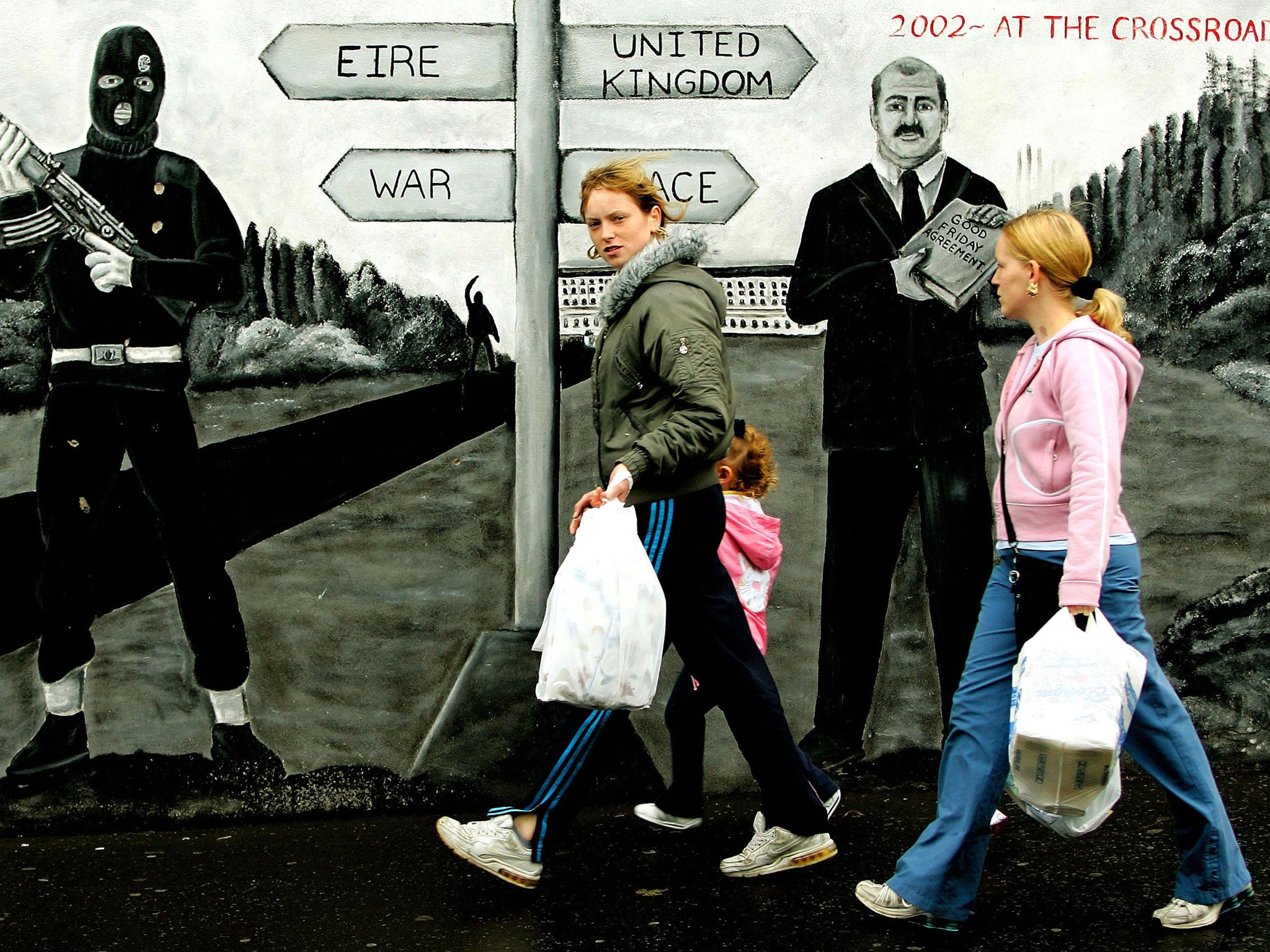Ulster loyalist hardliners in peace overture
Sinn Fein welcomes surprise PUP move toward active involvement in 'reconciliation' process

Your support helps us to tell the story
From reproductive rights to climate change to Big Tech, The Independent is on the ground when the story is developing. Whether it's investigating the financials of Elon Musk's pro-Trump PAC or producing our latest documentary, 'The A Word', which shines a light on the American women fighting for reproductive rights, we know how important it is to parse out the facts from the messaging.
At such a critical moment in US history, we need reporters on the ground. Your donation allows us to keep sending journalists to speak to both sides of the story.
The Independent is trusted by Americans across the entire political spectrum. And unlike many other quality news outlets, we choose not to lock Americans out of our reporting and analysis with paywalls. We believe quality journalism should be available to everyone, paid for by those who can afford it.
Your support makes all the difference.The political wing of the paramilitary Ulster Volunteer Force (UVF) has made a surprising offer to explore reconciliation with republicans. The proposal from within the heart of militant Ulster loyalism seeks to break the current logjam and start talks between republican and unionist parties.
"For Northern Ireland to deal with its past everyone must be involved," the Progressive Unionist Party (PUP) said in its initiative. "We all have a responsibility to participate."
Sinn Fein quickly welcomed the plan, saying it would pursue talks with the PUP and other sections of unionism and loyalism.
The issue of how to deal with the past is one of the most difficult facing Northern Ireland. For years, it has defeated the efforts of both the British government and the local parties to make progress on it.
The British government is intrigued by the new, conciliatory tone emerging from a group identified with the UVF, which is still occasionally associated with open violence.
In the past few months powerful UVF elements in east Belfast were accused of orchestrating serious rioting in the city in which a number of police officers were injured.
This continuation of UVF violence means that the PUP's plan will certainly not be taken at face value. Nonetheless, it is seen as a sign that not all in the loyalist ranks are hell-bent on using sporadic disturbances to keep tensions high and to "blood" new young recruits.
The PUP plan, titled "Transforming the Legacy", stresses that there should be no hierarchy of victims and makes an unusual effort to address the concerns of nationalists and republicans. "Nationalists should be afforded the same opportunities to participate in a process of dealing with the past as any community," they declare. "We ask that this be no different for loyalism, too."
The PUP chairman, John Kyle, a Belfast GP, said that Sinn Fein had already invited his party to take part in discussions, and that he had accepted the offer.
"We haven't been afraid to speak to republicans in the past, but that was on an ad hoc basis and now we're hoping for something more thoughtful and structured," he said.
"We also want to have constructive conversations with churches, union representatives, academics and others. This area has been neglected for years – it's time it was taken more seriously."
Dr Kyle added: "Rather than being stigmatised or scapegoated, loyalists need to be more active participants in creating a more just and peaceful society."
Sinn Fein's national chairperson, Declan Kearney, immediately welcomed the intervention. "We have a standing invitation and a consistent openness to engage with the PUP and all sections of unionism, and we would indeed be willing to discuss these things further," he said.
So far, there have been no signs of militant Protestant disapproval against the new approach, though the general belief is that some in the UVF ranks remain committed to occasional confrontations.
An organisation representing former UVF prisoners did welcome the move. Tom Roberts, the director of Epic, described it as a very good idea. "I certainly haven't heard any overt criticisms about it, though probably some people would have apprehensions about the republican line on reconciliation," he said.
"It's showing a great deal of responsibility. Creative thinking can come out of loyalism."
Subscribe to Independent Premium to bookmark this article
Want to bookmark your favourite articles and stories to read or reference later? Start your Independent Premium subscription today.
Join our commenting forum
Join thought-provoking conversations, follow other Independent readers and see their replies
Comments